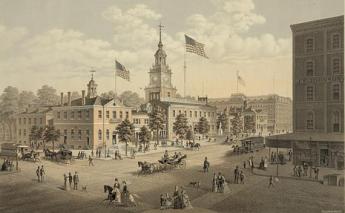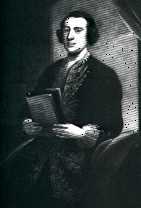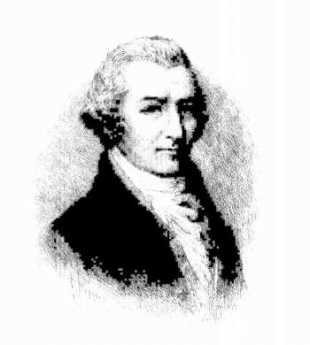Related Topics
Downtown
A discussion about downtown area in Philadelphia and connections from today with its historical past.

Quakers: All Alike, All Different
Quaker doctrines emerge from the stories they tell about each other.
Revolutionary Philadelphia's Patriots
All kinds of people were patriots in 1776, and many of them were all mixed up about what was going on and how they stood. Hotheads in the London Coffee House stirred up about an inoffensive Tea Act, Scotch-Irish come here to escape the British Crown, the local artisan class and the local smuggler class, unexpectedly prospering under non-importation, and the local gentry -- offended to be denied seats in Parliament like other Englishmen. Pennsylvania wavered until Ben Franklin stepped forward with a plan.
Causes of the American Revolution
Britain and its colonies had outgrown Eighteenth Century techniques of governance. Unfortunately, both England and America lacked the sophistication to make drastic changes smoothly.
Tourist Walk in Olde Philadelphia
Colonial Philadelphia can be seen in a hard day's walk, if you stick to the center of town.
Arch Street: from Sixth to Second
When the large meeting house at Fourth and Arch was built, many Quakers moved their houses to the area. At that time, "North of Market" implied the Quaker region of town.
Two Hotheads May Have Destroyed an Empire

|
| King George III |
Combatants in a war often personalize the enemy in a single person. In 1776 the American colonists blamed it all on King George III. The British might have picked Sam Adams or Thomas Paine. Things are of course always vastly complicated in the affairs of great nations. Economics and national power are strong forces, like our culture, religion, and the accidents of geography and history. But when matters teeter on the edge of a cliff, insignificant pests can occasionally start an avalanche.

|
| Charles Townshend |
Consider first Charles Townshend, the Chancellor of England's exchequer in 1768. Townshend didn't particularly want the job, hoping instead for the Admiralty. None of the political power brokers particularly wanted to give him the job, but ultimately regarded it as the place he could do the least harm. He might have had no less an advisor than Adam Smith, who was the tutor of his son, but Smith's letters to him are so servile that it seems unlikely he would urge free trade to such a headstrong merchantilist employer. It is intriguing to speculate this strange association might have sharpened Smith's opinions in the Wealth of Nations which first appeared in 1776./p>

|
| William Bradford |
Townshend had been a problem all his life. His mother was brilliant, and notoriously promiscuous. He and his father exchanged 2000-word letters explaining to each other how the other was completely wrong. Charles was witty, eloquent and charming when he wanted to be, and he married an enormously wealthy woman. After that, his family had no hold on him, and they rarely spoke to each other. The same charm and arrogance can be perversely effective in politics, so other politicians often just had to put up with him. But as politicians do, they roasted him in their letters and private conversations. His political opponent, Edmund Burke, was perhaps a most gentle critic when he observed, "His actions... seem never to have been influenced by his most wonderful abilities." Opponents, of course, welcome deficiencies in their enemies, while exasperated political allies can be the most scathing about team members who injure the party with misbehavior. Adam Smith referred to his employer as someone "who passes for the cleverest fellow in England." Chase Price described him as "utterly unhinged". Horace Walpole: "nothing is luminous compared with Charles Townshend: he drops down dead in a fit, has a resurrection, thunders in the Capitol, confounds the Treasury bench, laughs at his own party, is laid up the next day, and overwhelms the Duchess [of Argyll, his mother-in-law] and the good women that go to nurse him!" The final assessment of his biographer Sir Lewis Namier was "...illustrations of Charles Townshend's character can be picked out anywhere during his adult life. He did not change or mellow; nor did he learn by experience; there was something ageless about him; never young, he remained immature to the end."
What matters for contemporary American readers is Townshend's 14-year grievance against American legislatures which seem to have originated when he discovered the New York Legislature in 1754 up to its old tricks of refusing to provide funds for Royal initiatives it did not like. At the time, he was in his first public office, the Board of Trade and Plantations, and had written some highly arrogant orders to New York, making many high-handed and disdainful public asides to his friends, including his wish to have the Assembly cut out of appropriations except for token approval of them. He was young, so his wiser party colleagues simply deflected him. But by 1767 he was Chancellor of the Exchequer, a brilliant speaker, and no doubt had collected many political chits to be cashed in. The Townshend Taxes were enacted, his underlying personal grievances were well known, the colonial assemblies could see it meant big trouble.
Although almost no one could match Townshend for bizarre behavior, in Philadelphia at Front and Market Streets, there was another difficult personality, named William Bradford. As a printer and newspaper publisher, Bradford must have been a person of some note in a town of thirty thousand, but it is difficult to find a portrayal of him, and notes about his personal life are comparatively skimpy. We do know that he was a member of a family of newspaper printers, including grandfather, uncle, and son, all of whom had experienced official prosecution for defiance of government. His grandfather, also named William Bradford, is said to have had Quaker affiliation, but it is not particularly prominent in accounts of him, while almost no mention of Quaker affiliation is made of the rest of the family. Grandfather William had a notable apprentice named John Peter Zenger, who was prosecuted for libel against the Royal Governor of New York, defended in a famous trial by the Philadelphia Lawyer Andrew Hamilton, who established the principle that the truth is not a libel. We can rather safely presume that the younger William Bradford had grown up in an environment of hostility to authority, aggravated but not necessarily caused by some rather plain persecutions by authority. It may even have been specific hostility to British authority, since in 1754 young Bradford began publication of a specifically anti-British paper, The Weekly Advertiser. It is interesting to note that its principle competitor was a pro-British paper printed by Ben Franklin. Somewhere along the line, Bradford became head of the Sons of Liberty, clearly marking him as strongly anti-British, probably well before the Townshend Acts.
Bradford established the London Coffee House at Front and Market Streets in Philadelphia. That might seem a strange sideline for a printer, until you reflect that the location was right beside the waterfront, especially the Arch Street warf. Newspapers in those days almost never had professional reporters, depending for their content on gossip from visiting ships. A coffee shop near the waterfront would be an excellent place to hear the maritime news of the world, and possibly hear it sooner than competitors. The London Coffee House provided a place for bargaining and trade; the Maritime Exchange got its start there. It may or may not be significant that a main activity of the Exchange was to buy and sell slaves. It is sure that the Navigation Acts and the Townshend taxes on various imports were a central topic of angry discussion in a waterfront Coffee House from 1768 to 1776. Thus it is possible that Bradford was caught up in the excited opinions of his customers, but plenty of evidence of anti-British sentiment exists in his background to suppose he nursed a long-standing prejudice against the British government. Our most authoritative account of the events appeared in the Pennsylvania Packet of January 3, 1774, but the beginnings of the story were better related in the Pennsylvania Mercury of October 1, 1791, shortly after Bradford's death.
"After the Tax on Tea imported into America was reduced to 3d. per pound by the British Parliament, there appeared to be a general disposition in the colonies to pay it. In this critical situation of the Liberties of America, Mr. Bradford stopped two or three citizens of Philadelphia, who happened to be walking by the door of his house on Front-street, and stated to them the danger to which our country was exposed, by receiving, and paying the tax on, the tea. Many difficulties stared the gentlemen, to whom he spoke, in the face...; and it was particularly mentioned that the citizens of Philadelphia were tired out with town and committee meetings, and that it would be impossible to collect a sufficient number of them together, to make an opposition to the tea respectable and formidable. 'Leave that business to me(said Mr. Bradford),--I'll collect a town meeting for you--Prepare some resolves;--and,--they shall be executed.' The next evening he collected a few of such citizens who were heartily opposed to the usurpations of the British Parliament, who drew up some spirited resolutions to reject the dutied tea, and to send back the tea ship. These resolutions were adopted the Saturday following (October 16, 1773), by a large and respectable town meeting at which the late Dr. Thomas Cadwalader (a decided Whig) presided. The same resolutions were immediately afterwards (November 5, 1773) adopted, nearly word for word, by a town meeting in Boston, where a disposition to receive the tea had become general, from an idea that opposition to it would not be seconded or supported by any of the other colonies. The events (December 16, 1773) which followed the adoption of these resolutions in the town of Boston are well known. However great the merit and sufferings of that town were in the beginning of the war, it is a singular fact, and well worthy of record in the history of the events which produced the American Revolution, the First act in that great business originated in Philadelphia, and that the First scene in it originated with Mr. William Bradford."
Written within a few days of the events, the January 3, 1774 Pennsylvania Packet is more detailed. In particular, the grievance is stated to be "...the pernicious project of the East India Company, in sending Tea to America, while it remains subject to a duty, and the Americans at the same time confined by the strongest prohibitory laws to import it only from Great Britain." While it is not easy to find a quotation capsulizing the British response, it would be something to the effect that the Tea Act was in fact a face-saving gesture which reduced the price of tea for the colonists, and was received as such by most of them, until smugglers of Dutch tea now faced the same surplus of unsold tea which had nearly bankrupted the East India Company after the colonies resorted to non-importation. Both arguments contain a certain amount of spin, but side-by-side, they contained sufficient reasonableness to permit peaceful resolution. To go on with the details:
"Upon the first advice of this measure, a general dissatisfaction was expressed, that, at a time when we were struggling with this oppressive act, and an agreement subsisting not to import Tea while subject to the duty, our subjects in England should form a measure so directly tending to enforce the act and again embroil us with our parent state. When it was also considered that the proposed mode of disposing of the Tea tended to a monopoly, ever odious in a free country, a universal disapprobation showed itself throughout the city. A public meeting of the inhabitants was held at the State-House on the [16]th October, at which great numbers attended, and the sense of the city was expressed in [the following] eight resolves:"
which we will divide into three sections for commentary. Resolves 1,2, and 5 can be said to be a protest against the Tea Act. While the language is a little high-flown, such a protest would be considered a normal exercise of free speech:
"1. That the disposal of their own property is the inherent right of freemen;that there can be no property in that which another man can, of right, take from us without our consent: that the claim of Parliament to tax America is, in other words, a claim of right to levy contributions on us at pleasure. "2. That the duty imposed by Parliament upon Tea landed in America is a tax on the Americans, or levying contributions upon them without their consent. "5. That the resolution lately enered into by the East India Company to send out their Tea to America , subject the payment of duties on its being landed here, is an open attempt to inforce this ministerial plan, and a violent attack upon the liberties of America. "
Resolutions 3. and 4. are accusations of a deeper plot. The colonists do not want to be taxed by the British Government directly, but prefer to tax themselves so that final payment to colonial officials must pass through colonial control. Unspoken, of course, is the creation of an ability to thwart implementation of unwelcome directives from London:
"3. That the express purpose for which the tax is levyed on the Americans, namely for the support of government, administration of justice, and defence of his Majesty's dominions in America, has a direct tendency to render Assemblies useless, and to introduce arbitrary government and slavery. "4. That a virtuous and steady opposition to this ministerial plan of governing America is absolutely necessary to preserve even the shadow of liberty, and is a duty which every freeman in America owes to his country, to himself, and to his posterity".
Finally, in the tradition of the writing of resolutions, come the so-called Resolves, the solution to the problem which you wish your audience to agree to. These concrete actions are found in resolutions 6, 7, and 8. The British could be expected to be offended, since the Resolves do not acknowledge the right of Parliament to impose the tax, or humbly petition that they reconsider. Rather, they assume the role of sovereign government themselves, effectively declaring the colonies would punish anyone who obeyed the Law, would coerce those who are charged by Parliament to implement the Law, and would cause those appointed by Parliament to do this work, to resign or else the peace would be disturbed by colonial enforcement of these 'suggestions':
"6. That it is the duty of every American to oppose this attempt. "7. That whoever shall, directly or indirectly, countenance this attempt, or in any wise aid or abet in the unloading,receiving and vending the Tea sent, or to be sent out by the East India Company, while it remains subject to the payment of the duty here, is an enemy to his country. "8. That a Committee be immediately chosen to wait on these gentlemen, who, it is reported , are appointed by the East India Company to receive and sell said Tea, and request them, from a regard to their own character, and the peace and good order of the city and province, immediately to resign their appointment."
The thinly-veiled threats contained in these resolutions against anyone who disagreed were soon made more explicit when the tea ship actually arrived at the mouth of the Delaware around December 23, 1773, by public posters to the Delaware River pilots and Captain Ayers of the incoming Tea ship, signed by THE COMMITTEE FOR TARRING AND FEATHERING. Cards were printed up for the public to distribute around the premises of James and Drinker, telling them to resign as sales agents for the Tea by writing a note, to be delivered to the London Coffee House -- William Bradford's place of business. A few shouts and the waving of a few torches would have been sufficient to indicate that the alternative was arson.
A month elapsed between the proclamation of the Philadelphia resolutions and the actual arrival of Captain Ayers in our harbor. Another tea ship had arrived at Boston in the meantime on December 16,1773. The Boston citizens had dressed themselves as Indians, and dumped the Boston Tea consignment into the harbor, proclaiming the same eight Philadelphia-written resolutions. But in Philadelphia, violence proved unnecessary. James and Drinker resigned their appointments as sales agents, the pilots were ready enough to impede passage, and Captain Ayers on December 27, 1773 meekly sailed his cargo of Tea back where it came from.
Originally published: Wednesday, November 01, 2006; most-recently modified: Thursday, August 15, 2019
| Posted by: juan | May 22, 2008 3:14 PM |
| Posted by: Jasmine | Feb 27, 2008 1:21 PM |